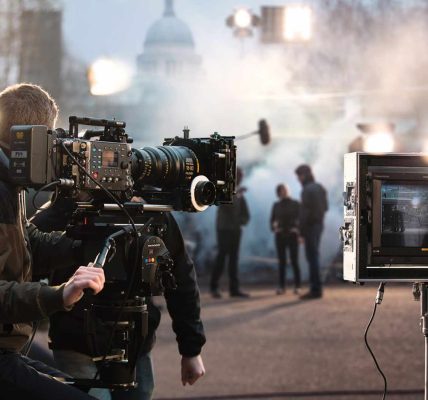Location Scouting: Finding the Perfect Setting for a Film
In the world of filmmaking, the right location can make or break a movie. Whether it’s the quaint streets of a European city, the breathtaking vistas of a natural landscape, or the authenticity of an urban alley, the setting plays a crucial role in transporting the audience into the world of the film. This is where the art of location scouting comes into play. In this article, we will delve into the fascinating world of location scouting and explore the essential role it plays in finding the perfect backdrop for cinematic storytelling.
The Role of Location Scouting
Location scouting is the process of searching for and selecting the ideal locations where a film’s scenes will be shot. It’s a critical step in pre-production that significantly influences the look, feel, and overall impact of the final film. Here’s why location scouting is so crucial:
- Setting the Tone: The location sets the tone for a film. It helps establish the time period, mood, and atmosphere of the story. Whether it’s a sunny beach or a dark and moody forest, the location communicates information to the audience without the need for dialogue.
- Enhancing Authenticity: Authenticity is key in filmmaking. The right location can make a film feel genuine and relatable, immersing the audience in the story. Authentic locations eliminate the need for extensive set design and CGI, saving time and resources.
- Supporting the Narrative: Locations are more than just pretty backgrounds; they are integral to the narrative. A well-chosen location can enhance character development, drive the plot, and create visual metaphors that deepen the storytelling.
- Budget Considerations: The choice of locations can have a significant impact on the film’s budget. Location managers must balance creative aspirations with financial constraints, ensuring that selected locations are cost-effective.
The Role of Location Managers
Location managers are the unsung heroes of the film industry. They are responsible for finding, securing, and coordinating the use of locations for film shoots. Their role involves:
- Scouting: Location managers search far and wide for potential locations, considering factors such as aesthetics, accessibility, and budget.
- Negotiation: They negotiate with property owners, government agencies, and other stakeholders to secure the necessary permissions and rights to use the locations.
- Coordination: Location managers coordinate logistics, ensuring that the cast and crew have access to the locations when needed. They also manage the set during filming, addressing any issues that may arise.
- Problem-Solving: Location managers are adept at solving unexpected problems, whether it’s securing last-minute permits or addressing weather-related challenges.
The Art of Location Scouting
Location scouting is both a science and an art. Here are some key considerations that location managers keep in mind when searching for the perfect setting:
- Script Analysis: Location managers carefully read the script to understand the specific requirements of each scene. This helps them identify potential locations that align with the director’s vision.
- Aesthetic Appeal: Visual aesthetics are paramount. Location managers look for settings that are visually striking and enhance the story’s mood and themes.
- Practicality: Practical considerations such as accessibility, parking, and accommodation for the crew are essential. Locations must also meet safety standards.
- Budget Constraints: Staying within budget is critical. Location managers work closely with the production team to ensure that the chosen locations align with the financial parameters of the project.
- Permits and Permissions: Securing the necessary permits and permissions is a complex task. Location managers navigate the legal and bureaucratic aspects of location use.
- Flexibility: Sometimes, the perfect location isn’t readily available. Location managers may need to be creative, adapting existing locations or building sets to meet the needs of the script.
Location Scouting Tips
If you’re interested in location scouting, here are some tips to keep in mind:
- Start Early: Begin the scouting process well in advance of the shoot to allow time for negotiation and preparation.
- Photograph Everything: Take extensive photographs and notes of potential locations, including details like lighting conditions and accessibility.
- Consider All Angles: Examine potential locations from multiple angles to ensure they work for various shots.
- Involve the Director: Collaborate closely with the director to ensure that the chosen locations align with their creative vision.
- Be Adaptable: Be prepared for unexpected challenges and changes. Adaptability is key in location scouting.
Conclusion
Location scouting is a crucial, yet often overlooked, aspect of filmmaking. It is the art of finding the perfect backdrop for cinematic storytelling, and the role of location managers in this process cannot be overstated. The locations chosen have a profound impact on the look, feel, and authenticity of a film, influencing how audiences connect with the story and characters. The next time you watch a movie, pay attention to the settings; they are not just backgrounds but essential elements in the art of filmmaking.












